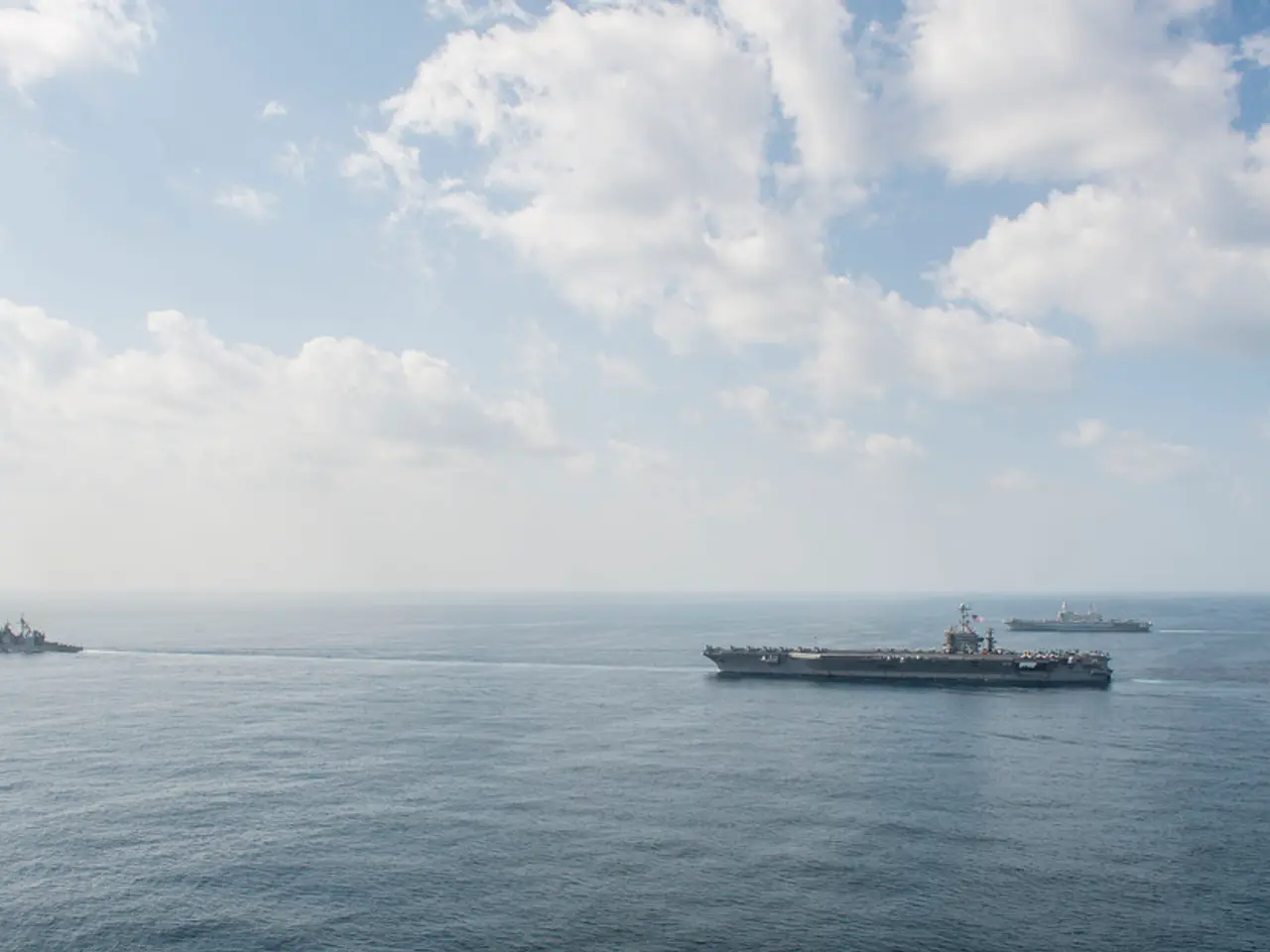Cruise line shares decreased once more on this day.
In the ever-evolving landscape of the global economy, the cruise line industry is grappling with a complex set of challenges and opportunities. As the world recovers from the pandemic, the sector is witnessing a surge in new shipbuilding and expansion of homeports, particularly in the Mediterranean, leading to concerns about potential oversupply and intensifying competition.
Post-pandemic recovery has stimulated a surge in new shipbuilding and expansion of homeports, especially in the Mediterranean, with 15 new ships launched in 2024 alone. This increased capacity raises concerns about potential oversupply, which could lead to pricing pressures and squeeze profit margins for major players like Royal Caribbean, Carnival, and Norwegian Cruise Line Holdings.
Another challenge comes from rising expenses due to regulatory compliance. Environmental regulations are tightening, notably in the Mediterranean designated as a Sulphur Emission Control Area (SECA) in 2025. Cruise operators must invest in cleaner technologies such as LNG fuel, hybrid propulsion, and shore power ("cold ironing") to comply. While these improvements benefit emissions and community relations, they also elevate operational costs.
Moreover, major cruise companies such as Carnival carry significant floating rate debt, exposing them to rising financing costs amid a rising interest rate environment. This can impact profitability and slow deleveraging efforts, posing financial risk especially if economic conditions worsen.
Despite strong current bookings, the sector remains vulnerable to shifts in consumer confidence and discretionary spending caused by economic downturns or shocks, which could reduce demand for cruises and onboard spending.
However, the industry is not without hope. Cruise lines are responding to shifting traveler preferences by offering longer itineraries, unique shore excursions to less crowded ports, and more authentic cultural experiences. Initiatives like Carnival’s customer loyalty programs and expansion of private island offerings aim to boost repeat business and onboard revenue.
Investments in "homeports" in cities like Barcelona and Marseille support longer passenger stays and higher local spending while advancing sustainability goals through green technologies, positioning the industry for responsible growth aligned with environmental and social expectations.
The industry remains a dynamic tourism sector, projected to carry 37.7 million passengers in 2025, with strong intent to cruise among diverse age groups, including Millennials and Gen-X. Cruise tourism contributes over $168 billion globally and supports 1.6 million jobs, underscoring its economic significance and resilience.
In the current market climate, characterized by high inflation, a potential recession, and stock volatility, cruise line stocks have taken a hit. For instance, Norwegian Cruise Line Holdings' stock dropped by 9.2% in early trading, while Royal Caribbean Cruises and Carnival Corporation's stocks dipped by 8.4% and 8.7% respectively.
Analysts such as James Hardiman from Citi and Jamie Rollo from Morgan Stanley have expressed concerns about the future of the industry due to these factors. If business conditions don't improve soon, there are fears of potential insolvency for some cruise line companies. Cruise lines may face pressures on both the revenue and expense fronts, with companies struggling to reach positive cash flow and pay down debt potentially winding up in trouble.
As the industry navigates these challenges, the future outlook will depend on balancing expansion with economic conditions, regulatory compliance, and evolving traveler demands to sustain profitability and industry vitality.
Finance and investing in the cruise line industry are crucial as the sector recovers from the pandemic, with the potential oversupply of ships leading to pricing pressures and squeezed profit margins for companies like Royal Caribbean, Carnival, and Norwegian Cruise Line Holdings. (Money, finance, investing, business)
Rising expenses due to regulatory compliance, such as the tightening of environmental regulations in the Mediterranean, necessitate investments in cleaner technologies like LNG fuel, hybrid propulsion, and shore power, elevating operational costs. (Finance, money, investing, business, environment)
Amid a rising interest rate environment, major cruise companies like Carnival carry significant floating rate debt, exposing them to rising financing costs that could impact profitability and slow deleveraging efforts, posing a financial risk if economic conditions worsen. (Finance, money, interest rate, debt)




